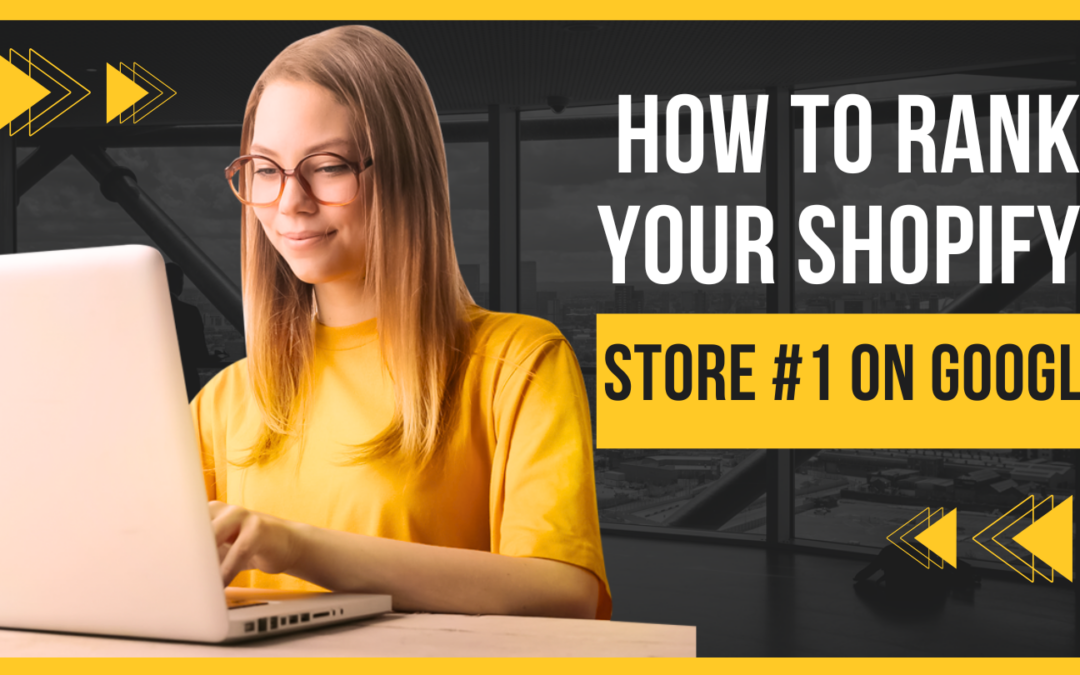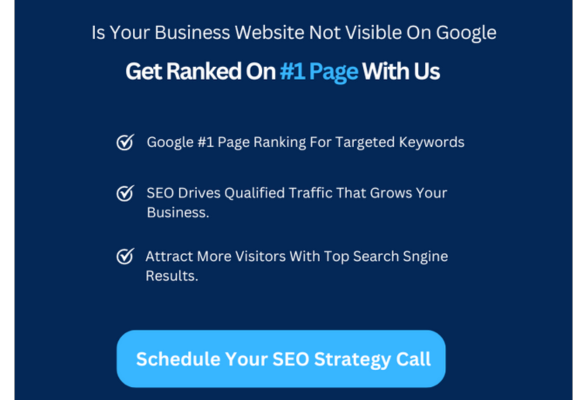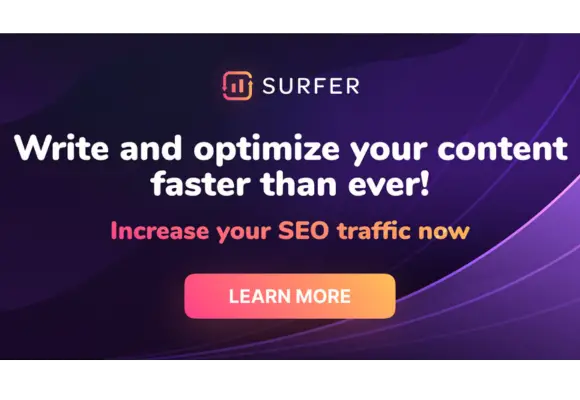Shopify SEO KEY TAKEAWAYS
- On-Page SEO: Optimize product pages (titles, headings, descriptions, images) for relevant keywords & speed.
- Content Marketing: Create valuable blog content (target keywords) to attract traffic & build brand authority.
- Backlink Building: Earn backlinks from relevant, high-quality websites in your niche.
- Technical SEO: Verify Shopify store on Google Search Console (track performance, fix issues, submit sitemaps).
Dreaming of your Shopify store climbing the Google ranks and leaving competitors in the dust? The key lies in mastering SEO. This guide dives into powerful tactics like on-page optimization, content marketing strategies, and backlink building to transform your store into a search engine magnet. Buckle up and get ready to unlock the secrets of Shopify SEO success!
Understanding Shopify SEO: Elevating Your Shopify Store in Google Rankings
Conquering Shopify SEO is essential for any e-commerce entrepreneur who wants to get their Shopify store noticed more in Google searches. These days, more than just having a website is needed. You need to fine-tune your Shopify site to leverage the power of e-commerce SEO, ensuring Google’s search algorithms prioritize your products.
A well-planned Shopify SEO strategy involves analyzing and applying SEO best practices specifically designed for Shopify. Enrich product pages with relevant keywords, improve your site’s speed for a smoother user experience, and ensure your content is fresh and informative.
Google’s search algorithms are like complex puzzles with many moving pieces. Figuring out how these pieces affect your Shopify SEO is crucial for success. It’s all about the dance between your Shopify SEO strategy and Google’s algorithms.
Optimizing your Shopify store for Google is a continuous journey, and consistent SEO practices are your key weapon. Regularly refreshing your content, conducting keyword research, and monitoring your Google rankings are essential to staying ahead.
A well-rounded Shopify SEO strategy requires careful attention to what’s on your website (on-page SEO) and what happens off your site (off-page SEO). Everything works together to climb the Google rankings ladder, from enticing meta titles and descriptions to high-quality backlinks and social buzz.
Here at The Branding Agency, we get that Shopify SEO goes beyond just stuffing keywords into your content. It’s about crafting a smooth and engaging online shopping experience that Google identifies as top-of-the-line. With a solid e-commerce SEO plan, you’re paving the way for your Shopify store to snag that coveted #1 spot on Google.
Ready to unlock the power of Shopify SEO and watch your store climb the Google rankings? Start your free Shopify trial today: Affiliate Link ►► https://www.shopify.com/free-trial
Elevate Your Brand: Why Investing in a Custom Domain Matters
Building a strong online presence for your brand is more than just having a website. Owning a custom domain is a smart strategic move. Think about it: a customer searches for your store and lands on a generic web address. Not a confidence booster, right? But with a custom domain, your website instantly gains credibility. It shows you’re a serious player in the game.
A custom domain that reflects your brand sets you apart from the competition and greatly impacts your SEO. Google sees websites with custom domains as more trustworthy, which can give your Shopify store a major boost in search rankings. That coveted first-page position could be all yours!
Think of your custom domain as the cornerstone of your online business. It captures the heart of your brand in a way that a generic Shopify URL simply can’t. It’s more than just looking good; it’s about establishing a strong, memorable brand identity.
A custom domain is easier for customers to remember. Search engines show that your Shopify store is serious about delivering a great user experience, which is essential for SEO. Keep things consistent across all your website pages to make an even stronger impression. Navigation becomes a breeze with this feature, making your brand even more recognizable.
A custom domain isn’t just a fancy upgrade; it’s an investment in your store’s future. When everything on your Shopify site – from the domain name and branding to the content you write – works together towards your business goals, you create a powerful online presence built for long-term success.
The Branding Agency can help you build a unique digital identity that perfectly reflects your brand. With a custom domain in place, your Shopify store will be well-positioned to dominate search results and claim that coveted #1 spot on Google.
Setting Up Google Search Console: A Step Towards Mastering Shopify SEO
Taking control of your Shopify SEO journey starts with a powerful duo: Google Analytics and Google Search Console. These free tools are like goldmines of information, helping you understand how visitors find your store and how to improve your ranking on Google.
Google Analytics tracks visitor behavior on your site, giving you valuable insights. Combine this with the diagnostic power of Search Console, and you can fine-tune your SEO strategy. Search Console, in particular, is a must-have for any Shopify store owner who is serious about climbing the search engine ladder. It lets you submit sitemaps, monitor your store’s performance in search results, and identify any technical problems holding you back.
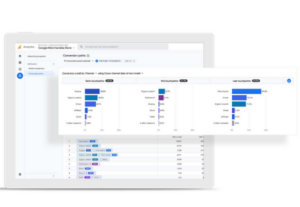
Unleash the Power of Google Search Console for Shopify SEO
By providing a treasure trove of information about how Google sees your store, Search Console acts as a secret weapon for Shopify SEO. You’ll uncover valuable insights like:
- Keywords: What search terms are people using to find your store?
- Ranking: Where does your store typically land in search results?
- Backlinks: Which websites link back to you, boosting your authority?
With this intel, you can identify areas to strengthen your SEO strategy. Focus on what’s working and address any weaknesses to optimize your ranking.
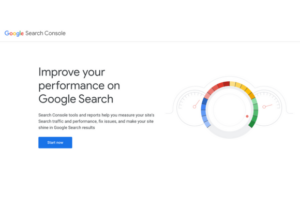
Ready to Take Control of Your Shopify SEO?
Don’t wait! Set up Google Search Console today. It’s a free tool that empowers you to understand your audience and optimize your store for search success. By combining this knowledge with a custom domain name (another SEO booster!), you’ll be well on your way to conquering search engines and attracting more customers to your Shopify store.
Unleash the full potential of your Shopify SEO with SEMrush’s powerful tools. Start your free trial today! Affiliate Link ►► https://www.semrush.com/lp/success-make-business-visible-aff/en/
Verify Your Website Ownership in Google Search Console
Verifying your Shopify store on Google Search Console takes your SEO game to the next level. Here’s how:
- Direct Communication: Once verified, your store can talk directly to Google. This ensures your changes appear quickly in search results, keeping your ranking information accurate. (New benefit focusing on faster update of search results)
- Troubleshooting Expertise: As the verified owner (think “web admin in charge”), you gain the power to troubleshoot any SEO roadblocks that might be holding your store back. (New benefit focusing on troubleshooting capabilities)
Verification is just the first step, but it’s crucial. You unlock a treasure trove of SEO tools to help you dominate search rankings by giving Google Search Console ownership access. Remember, SEO is a marathon, not a sprint, so stay committed to your strategy!
Get Serious About Your Blog: The Engine Driving Your Shopify Store’s Success
In today’s digital market, a well-maintained blog is no longer optional for Shopify stores – it’s a necessity. Why? Because a strategic blog acts as the engine driving your store’s success in several ways:
- Climb the Search Engine Ladder: A blog allows you to target relevant SEO keywords, organically attracting new customers searching for products like yours. Each blog post becomes a stepping stone towards establishing your store as a trusted resource in your niche.
- Engage Your Audience: Compelling content keeps visitors coming back for more. Building trust and brand loyalty ultimately converts readers into customers.
- Boost Conversions: Informative blog posts can educate potential buyers about your products and their benefits, making them more likely to purchase from your store.
While automation tools can help streamline SEO tasks, the real power lies in creating high-quality content that resonates with your target audience.
Remember, content is king, but consistency keeps you on the throne. Regularly publishing fresh, engaging content is crucial for building a loyal readership and maximizing your blog’s impact on your Shopify store’s success.
Fuel your Shopify blog with high-ranking content – Try Surfer SEO’s free trial today! Affiliate Link ►►https://get.surferseo.com/rankShopify
Utilizing Shopify’s Blog Feature to Boost SEO and Store Engagement
Shopify’s built-in blog functionality makes creating SEO-rich content a breeze. Several advantages result from this:
- Simplified Setup: No need for complex third-party apps – your blog lives seamlessly within your Shopify store.
- Streamlined Workflow: Manage your blog alongside your products and orders, saving valuable time.
- SEO Optimization: Easily integrate relevant keywords into your blog posts, improving your search ranking.
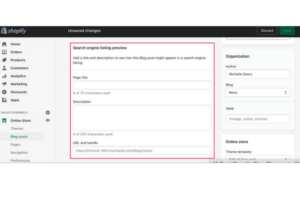
But a blog goes beyond just SEO. It’s a platform to connect directly with your customers:
- Build Relationships: Share valuable insights, answer questions, and foster brand loyalty.
- Drive Engagement: Keep visitors returning for more with compelling content that resonates with their needs.
Imagine your blog as a powerful engagement engine built into your Shopify store. Let’s work together to transform your blog and watch your brand soar!
Turn your Shopify blog into a customer magnet with engaging content – Learn more about Stamped.io’s review management software! Affiliate Link ►► https://get.stamped.io/rankShopify1

Fuel Your Content Calendar: Keyword Research for Top-Ranking Shopify SEO
Keyword research is the fuel that ignites your Shopify SEO content calendar, but a well-organized calendar is the engine that drives results. Here’s how these two work together:
- Uncover Search Intent: Keyword research reveals the exact terms your ideal customers are searching for. This intel lets you plan your content calendar with topics addressing their needs and questions.
- Strategic Content Creation: Armed with relevant keywords, you can curate a content calendar packed with blog posts that resonate with your audience and drive traffic to your store.
- Stay Organized and Consistent: A content calendar helps you schedule and organize your content creation process, ensuring a consistent flow of fresh, SEO-optimized blog posts.
The result? A strategic content calendar with high-performing content attracts a more engaged audience and significantly boosts your Shopify store’s Google ranking.
Remember: Consistent, high-quality content is key to SEO success. A content calendar helps you stay organized and ensure your content strategy aligns with your keyword research.
Uncover the perfect keywords to fuel your content calendar – Try SEMrush’s Keyword Magic Tool for free today! Affiliate Link ►► https://www.semrush.com/lp/product-keyword-magic-tool-7/en/
Target the Right Audience: Craft Content Around Long-Tail Queries
Understanding your target audience’s needs is crucial for captivating and driving conversions in your Shopify store. Long-tail queries can be incredibly powerful in this regard. These are more specific search terms people use when they’re further along in the buying journey, actively looking for solutions.
Create Posts in Response to Search Queries:
- Go beyond generic content. Leverage long-tail keywords to create targeted “search query response” posts. These posts answer questions your ideal customers are actively searching for online. For example, if you sell running shoes, a post titled “Best running shoes for high arches 2024” directly addresses a specific search query.
- This approach positions you as a trusted resource, attracting qualified leads who are more likely to convert.
Weave Long-Tail Keywords Throughout Your Content:
Keep going with dedicated search query response posts. Integrate relevant long-tail keywords naturally throughout your existing content, including:
- Product Descriptions: Use long-tail keywords to highlight specific features and benefits that resonate with your target audience’s needs.
- Blog Posts: Woven into posts, long-tail keywords can target specific buyer personas and interests.
- Meta Tags: Optimize your meta tags with relevant long-tail keywords to improve search engine ranking for those specific queries.
Think of long-tail keywords as a laser focus for your content. Creating content that directly addresses your target audience’s needs and search queries will attract the right customers and establish yourself as an authority in your niche.
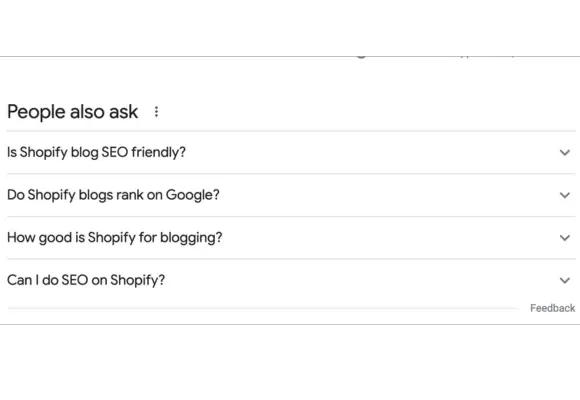
Mastering On-page SEO: Optimize Headings & More for Shopify Success
On-page SEO is all about optimizing your Shopify product pages for search engines. And what’s a secret weapon in this battle? Headings!
Clear, descriptive headings with relevant keywords are like signposts, guiding search engines and users through your content. For search engines, they help you understand the structure and content of your page, influencing your ranking. For users, they make your pages easier to scan and navigate, keeping them engaged.
Think of headings like mini-billboards within your content, breaking it into digestible chunks and highlighting key information. Headings come in different levels, with H1 typically used for your main product title and H2 for subheadings that delve deeper into features and benefits.
But on-page SEO goes beyond just headings. It’s about optimizing every element on your Shopify product pages to reach their full potential.
The key is finding the keyword sweet spot – use relevant keywords throughout your content, but remember, quality content trumps keyword stuffing! Integrating these tactics increases your chances of landing that coveted #1 spot on Google for your target terms.
Every detail on your product pages plays a role in a strong on-page SEO strategy. This includes the meta descriptions in search results and the alt text for your product images. Optimizing these elements makes things easier for your visitors and search engines, ensuring they recognize your pages as relevant and high-quality.
Mastering Shopify SEO takes time and dedication. It’s about constantly refining your approach and adhering to on-page SEO best practices for every page. The Branding Agency can be your partner in this journey. We’ll help you implement these strategies and make your Shopify store shine in a competitive market, transforming your product pages into industry-leading hubs for performance and customer engagement.

Beyond Keywords: Mastering Page Titles & Relevant Meta Descriptions
Don’t underestimate the power of page titles and meta descriptions! These are like mini-billboards for your Shopify store, grabbing attention in search results and enticing customers to click through. Think of them as strategic marketing tools.
Craft Compelling Titles:
- Keep it Clear and Concise: Your page title should be the essence of your content, naturally incorporating relevant keywords. Aim for accuracy – the title should accurately reflect the page’s content. Uniqueness is key – each page deserves a unique title packed with relevant keywords, but avoid keyword stuffing.
Write Enticing Meta Descriptions:
- Think of it as a Summary: A well-written meta description is a concise summary that convinces people to visit your page. Use keywords that mirror what your customers are searching for but weave in enticing language that tells a story about what’s on the page. This blend of relevant keywords and persuasive language can be the key to rocketing your Shopify store to the top of search results.
Strategic Marketing Tools:
At The Branding Agency, we see these elements as strategic marketing tools. We help clients craft titles and descriptions that get noticed and drive traffic to your store.
The Winning Formula:
Titles: Relevancy is key! Use keywords naturally, ensuring your title accurately reflects the content. Each page should have a unique title rich with relevant keywords but avoid keyword stuffing.
Descriptions: Consider your meta description a summary that convinces people to visit your page. Include keywords that mirror your customers’ search queries and tell a story about what’s on the page. This strategic blend of keywords and enticing language can be the key to rocketing your Shopify store to the top of search results.
We’re Here to Help:
The Branding Agency is here to help you strike the perfect balance between keyword-rich content and persuasive language. We’ll craft titles and descriptions that get noticed and drive traffic to your store, setting your SEO efforts apart from the competition.
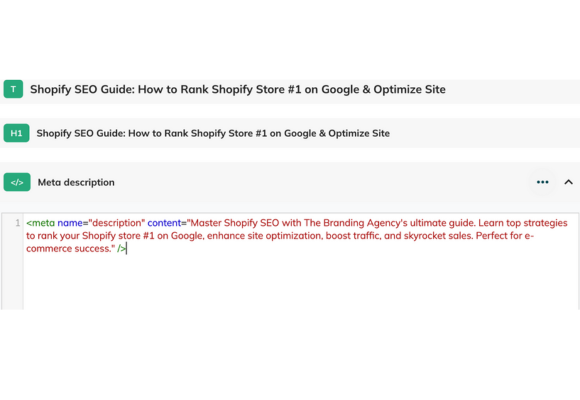
Optimizing Images for Better Load Times on Shopify Sites
High-quality visuals are essential for your Shopify store, but large image files can slow loading times. Here’s the fix:
- Compress & Resize: Optimize images to find the perfect balance between quality and file size. Tools and formats like WebP can significantly reduce file size without sacrificing visual appeal.
- Descriptive File Names: Use keywords in your image file names to help search engines understand your content and potentially show your images in search results.
- Fast Loading = Happy Customers: Remember, slow loading times frustrate visitors. Regularly optimizing images keeps your store running smoothly and enhances the overall customer experience, which can indirectly boost your SEO.
This revised version shortens the content by focusing on the three key actions: compress & resize, descriptive file names, and fast loading times = happy customers. It also removes unnecessary phrases and keeps the call to action concise.
Investing in Superior Image Content to Polish Your Store’s Visual Appeal
High-quality images are essential for any Shopify store. They’re not just eye candy; they’re silent salespeople who:
- Captivate Customers: Stunning visuals grab attention and keep visitors engaged.
- Boost Conversions: Professional photos showcase your products and influence buying decisions.
- Tell Your Brand Story: Compelling visuals create a sense of realness and connect with your audience.
SEO Benefits of Great Images:
- Image Alt Text: Use relevant keywords in your image alt text to help search engines understand your content and potentially display your images in search results.
- Visually Appealing Layout: A well-designed store with high-quality images keeps visitors engaged and browsing longer.
Invest in Images, Invest in Success
Investing in superior images and optimizing them for SEO will elevate your Shopify store, improve conversion rates, and attract more customers. The Branding Agency can help you unlock the power of visuals and create a winning e-commerce strategy.
Executing Off-Page SEO to Build Authority for Your Shopify E-commerce Site
On-page SEO is essential for a strong foundation, but off-page SEO is the magic sauce that propels your Shopify store to the top of search results.
What is Off-Page SEO?
Think of it as building a stellar reputation online. When high-quality websites link to your Shopify store, it’s like receiving a vote of confidence from a trusted source. Search engines view these backlinks as a sign of valuable content, rewarding you with higher rankings.
The Power of Backlinks:
Backlinks are the cornerstone of off-page SEO. They’re links from other websites pointing to your Shopify store. The more high-quality backlinks you have, the greater your authority and search ranking.
Quality Over Quantity:
Not all backlinks are created equal. Imagine getting recommendations – a glowing review from a respected source carries more weight than numerous mentions from unknown websites. Focus on building backlinks from relevant, high-authority websites for maximum SEO benefit.
A Winning Combination:
Off-page SEO works best when combined with a strong on-page SEO strategy. Together, they create a powerful force that drives your Shopify store to the top of search results.
Build a network of authority backlinks and skyrocket your ranking – Explore Authority Builders’ link-building strategies today! Affiliate Link ►►https://authority.builders/apply/d6pc984369
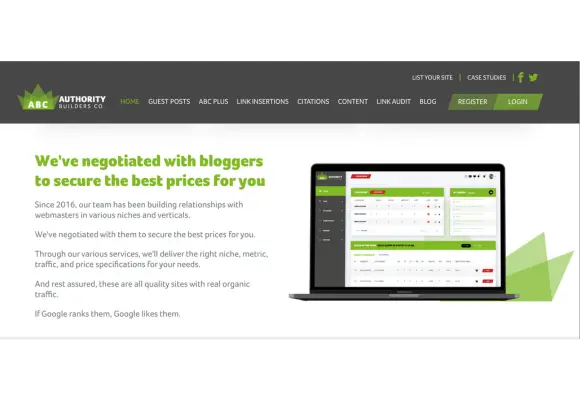
Effective Link Management: The Importance of Backlinking for Shopify Store Ranking
Effective link management goes beyond simply acquiring backlinks. It involves strategically contacting other websites and convincing them to link to yours. Think of these backlinks as bridges connecting your store to the wider e-commerce world. The more well-maintained bridges you have, the more your store becomes more prominent in search results.
Why Backlink Outreach Matters:
Backlink outreach is a powerful SEO tactic for several reasons:
- Increased Authority: When high-quality websites link to your store, it signals to search engines that you’re a credible and valuable resource. Boosting your ranking potential can significantly improve your website’s performance.
- Enhanced Visibility: Backlinks from relevant websites drive traffic to your store. People clicking through those links are already interested in products or services similar to yours, making them high-quality potential customers.
- Improved Brand Awareness: Backlinks act as online endorsements, increasing brand awareness and establishing your store as a leader in your industry.
Crafting a Winning Backlink Outreach Strategy:
Here are some key steps to consider for successful backlink outreach:
- Identify Relevant Websites: Target websites that cater to your audience and share similar content themes. Tools like Ahrefs or SEMrush can help with this process.
- Develop Valuable Content: Create high-quality, informative content that other websites want to link to. Consider specifying the type of content that could be submitted, such as guest blog posts, infographics, or industry reports.
- Personalized Outreach: Craft personalized emails to website owners or editors. Highlight your content’s value to its audience and explain why a backlink would be mutually beneficial.
- Track and Monitor: Use backlink tracking tools to monitor your progress and measure the impact of your outreach efforts.
Remember: Building a strong backlink profile takes time and effort. Focus on creating valuable content, building genuine relationships, and consistently contacting relevant websites.
Combining a well-executed backlink outreach strategy with a solid on-page SEO foundation will create a powerful force for driving your Shopify store’s ranking and overall success.

